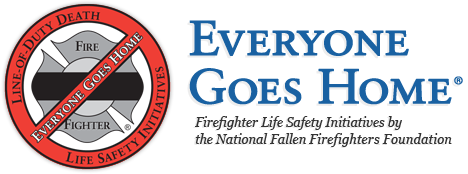Within the past decade, there has been an increased awareness that the stressors of fighting fires and responding to stressful incidents are taking a significant toll on the behavioral health of firefighters. A recent study of 893 firefighters by Florida State University published in the Journal of Psychiatric Research shows a strong relationship between post-traumatic stress symptoms (PTSS) and suicidal thoughts and attempts among firefighters.
To help address this complicated issue and need for interventions, the National Fallen Firefighters Foundation (NFFF), through the Everyone Goes Home® program, has partnered with the Medical University of South Carolina (MUSC) to create resources to support Firefighter Life Safety Initiative 13: Firefighters and their families must have access to counseling and psychological support.
MUSC’s Technology Applications Center for Healthful Lifestyles, College of Nursing, and the National Crime Victims Research and Treatment Center developed Pocket Peer (www.pocketpeer.org) so firefighters can access behavioral health information and support from their mobile devices and tablets. The site can be added to a home screen, saved as a bookmark or added as a favorite.
PocketPeer.org currently has two modules, Firefighters Helping Firefighters and RIT Tools for Suicide Prevention. A new module, EAP Tools for Critical Incidents, will be launched in the spring.
Firefighters Helping Firefighters is a collection of brief video interviews with firefighters and fire service supervisors who speak candidly about their experiences. Topics include stressful events, deciding to get treatment and how their loved ones were affected.
RIT Tools for Suicide Prevention provides information and resources to help firefighters recognize and respond to signs of suicidal behaviors in themselves, colleagues or loved ones. The National Suicide Prevention Lifeline (1-800-273-8255) is prominently displayed.
“We hope everyone will familiarize themselves with the new research about firefighter behavioral health and access these important resources so they will be ready to help themselves or others who may be contemplating suicide,” said Chief Ron Siarnicki, Executive Director of the NFFF.
Chief Siarnicki also expressed his gratitude for the ongoing partnership with MUSC and the financial support of DHS/FEMA’s Grant Program Directorate for Assistance to Firefighters Grant Program – Fire Prevention and Safety Grants. “Without partnerships like these, we would not be able to address this consequential issue in today’s fire service. We may never know about the people that were impacted by this work but I have no doubt that it will make a difference.”


